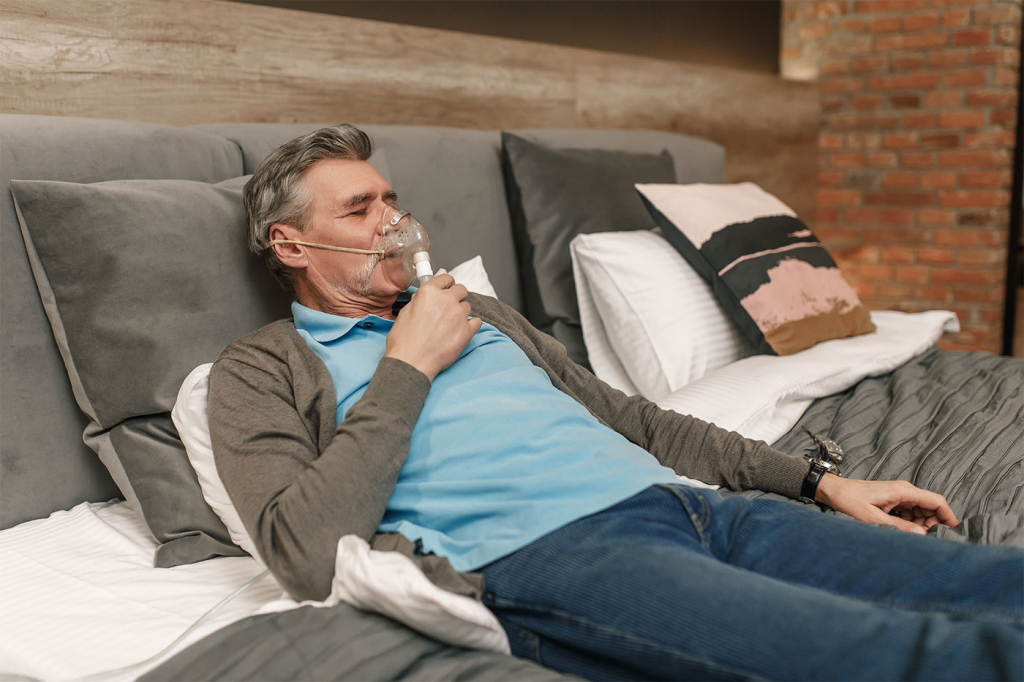Phone: 800-414-2358
Fax: 718-946-6727
- Bathroom Aids
- Respiratory Care
- Disability Accessories
- Walking Aids
- Wheelchairs
- Patient Room
- Bariatric Items
Phone: 800-414-2358
Fax: 718-946-6727

How to Improve Your Outpatient Respiratory Care
- by
- Steve Zeltser
- -
- October 23, 2018
- -
The number of asthma patients has grown immensely over the past decade, although there is no single explanation of why the condition has spread throughout well-developed Western countries. Chronic obstructive pulmonary disease (COPD), pulmonary emphysema, and bronchial asthma are just a few of the many breathing disorders that require high quality continuous at-home treatment.
Respiratory aids such as canister oxygen, nebulizer systems, sleep apnea masks and CPAP machines can considerably simplify at-home respiratory care.
Specific Conditions for Respiratory Care
There are very few reasons why a patient would need respiratory aids:
- respiratory illness, such as asthma, emphysema, or severe allergies;
- residing or working in an area with very poor air quality (mining regions for instance).
Air purifiers and humidifiers can increase air quality inside the home to a degree. An asthma patient can feel the difference when household air is purified. When it comes to more advanced respiratory care, CPAP and BiPAP machines, nebulizers, nebulizer kit, masks, tubing, oxygen cylinders and respiratory accessoires can help maintain outpatient respiratory care securely and successfully.
CPAP and BiPAP
CPAP stands for “Continuous Positive Airway Pressure.” This type of respiratory device delivers air under pressure through a tube into a mask that covers the face. CPAP helps to provide continuous breathing during sleep – a time when the patient has little to no control over a sleep apnea condition. COPD patients can use CPAP machines as well.
Bronchial Asthma Treatment
Allergic obstruction and bronchial spasm are the two pillars of bronchial asthma. Proper and timely respiratory care can change the quality of life for an asthma patient.
Nebulizers are small compressor machines that deliver aerosol medication directly to the site of allergy-driven chronic bronchial inflammation.
At-Home Oxygen Concentrators/Cylinders
Stationery home oxygen concentrators, along with portable emergency oxygen systems, are meant to be used at home. However, we now have highly portable oxygen cylinders that a patient can carry around without being homebound. These cylinders provide medical grade oxygen in a durable and quiet unit. They can be carried in a backpack-like bag or hung onto the back of a wheelchair.
Even though home units are intended to be stationary, most are manufactured to be easily rolled from one room to another.
Thanks to progress in medical devices, respiratory patients can now live a happy and full life without worrying about safety. Respiratory care aids enable caregivers to deliver oxygen to a patient while waiting for emergency responders to arrive. It is statistically proven that high-quality at home respiratory care not only saves lives, but it provides a higher quality of life for respiratory disorder patients.

Fast Delivery

Special Discount

Secure Checkout






